Bobby Womack (March 4, 1944 – June 27, 2014) – Everything's Gonna Be Alright (1975)
The legendary singer/songwriter wrote this epic funky opening cut for his Safety Zone LP, produced by David Rubinson and featuring James Gadson on drums.
Watch video on YouTube
View most updated version of this post on Substack
Open YouTube playlist of all songs
Search our full archives
The great singer/songwriter and producer Bobby Womack would have turned 80 years old on March 4.
See our earlier post on Womack for more on his musical career. Mad props to DJ A-Ski, one of L.A.’s finest old school soul selectors and a lifelong Bobby Womack fan, for turning us on to several of the tracks highlighted below.
One of Womack’s early singles as a solo artist was the stellar upbeat jam “What Is This?,” released on Keymen Records in 1966. He re-recorded it two years later for his debut solo LP Fly Me To The Moon, issued on Minit in January, 1969.
Womack’s first real hit was with the heartfelt jam “That’s The Way I Feel About Cha” off his 1971 Communication LP, which he co-wrote with Joe Hicks and Jimmy Grisby. Released as the album’s second single in early 1972, it peaked at #2 R&B and #27 on the Billboard Hot 100. He performed it live on Soul Train later that year.
Communication was his third studio album, but marked the first time he produced one of his records himself. Its universal love anthem “Come L’Amore” was co-written by Leon Ware, and featured Pam Grier on backing vocals alongside Patrice Holloway and Janice Singleton.
After self-producing another four of his own albums, Womack collaborated with noted producer David Rubinson on his eighth studio LP Safety Zone, recorded in 1975 and released that October. While working for Columbia Records, Rubinson had produced the Chambers Brothers, Moby Grape, and Santana, and went on to produce nearly all the albums released by the Pointer Sisters and Herbie Hancock during the seventies.
Its cover photo featured Womack with his young son Vincent, who in 1987 tragically committed suicide at age 21. Womack wrote or co-wrote the majority of the tracks, including a remake of “Trust in Me,” which he originally recorded in 1967 as a non-LP B-side that did not chart. Janis Joplin then recorded it for her final album Pearl in 1971, featuring Womack on acoustic guitar. It was again issued as a B-side, this time in January, 1976 on the flip of his #5 R&B hit single “Daylight,” the first of many songs he would co-write with songwriter Harold Payne.
Womack solely wrote the LP’s epic opening cut “Everything's Gonna Be Alright.” Like the rest of the album, its all-star lineup included Melvin “Wah Wah Watson” Ragin on guitar, who also was credited as an associate producer, bassists Willie Weeks and Louis Johnson, Sonny Burke on piano and synthesizers, percussionist Bill Summers, James Gadson on drums, and the Pointer Sisters on backing vocals.
The album closed with the ultra-funky dancefloor anthem “I Feel A Groove Comin’ On,” also solely written by Womack, with special guest Herbie Hancock on piano. It became a favorite at early New York City discos like Tee Scott’s Better Days.
Womack was a heavy drug user during the seventies, a byproduct to some degree of his close friendship with Sly Stone. In a 1984 interview with Rolling Stone, he explained:
“I was really off into the drugs. Blowing as much coke as I could blow. And drinking. And smoking weed and taking pills. Doing that all day, staying up seven, eight days. Me and Sly were running partners.”
After another of his sons Truth Bobby died as a four-month-old infant in 1978, Womack sank into depression and became addicted to cocaine. His previous three albums had failed to chart, and in an attempt to get his career back on track, hired Ike Turner’s talented 22-year-old keyboardist Patrick Moten to play keyboards on and co-produce his next LP. The result was Roads Of Life (1979), dedicated to Truth Bobby and regarded as one of his all-time best records. Womack wrote the superb funky dancefloor cut “Honey Dripper Boogie.”
He also wrote the disco-funk anthem “Mr. D.J. Don't Stop The Music.” With Leon Ware, he co-wrote the philosophical meditation on life “The Roots In Me.”
Womack and Moten co-wrote the album’s masterpiece, the heartfelt jam “How Could You Break My Heart.” It was destined to become a huge hit on the UK’s modern soul scene.
“How Could You Break My Heart” reached #40 R&B, and Roads Of Life hit #55 on the R&B albums chart. Bobby Womack was back, although he would struggle with his cocaine addiction for another decade until finally getting clean in rehab at the end of the eighties.
Along the way, he released a pair of his all-time biggest-selling LP’s, The Poet (1981) and The Poet II (1984), which went to #1 and #5 on the R&B albums charts, respectively. The latter included the boogie funk anthem “Tell Me Why.” Womack co-wrote it with Jim Ford, who earlier wrote Womack’s 1973 hit “Hairy Hippie” in tribute to his brother Harry Womack’s carefree lifestyle.
The two of them also co-wrote the album’s closing cut, the powerful message song “American Dream.”
Happy Heavenly 80th Birthday to the legendary Bobby Womack.
Further info:
“Bobby Womack Sewn Up," interview, Wax Poetics, 2011.
“Bobby Womack, Royalty of the Soul Era, Dies at 70,” obituary, The New York Times, June 27, 2014.
“The Unimpeachable Songs of Bobby Womack,” The New Yorker, June 28, 2014.
“Bobby Womack sang like his life depended on it, and that endures,” The Conversation, June 29, 2014.
#soul #funk #DavidRubinson #SlyStone #BobbyWomack


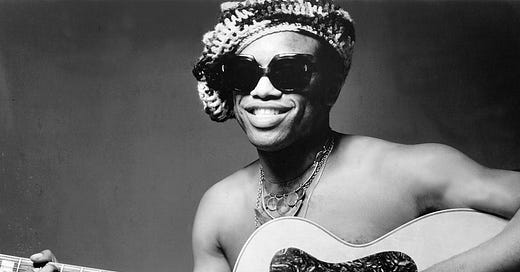

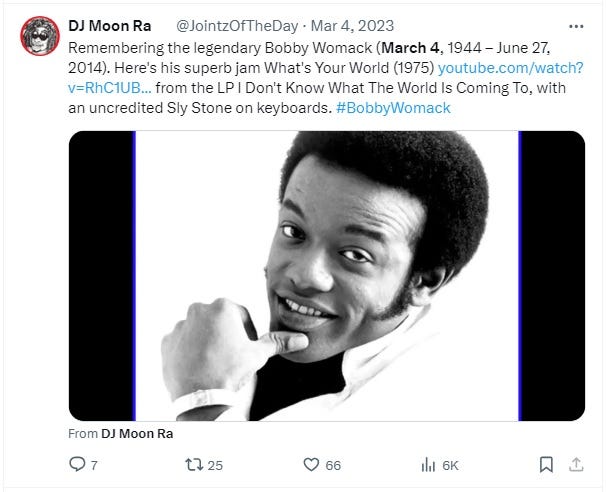


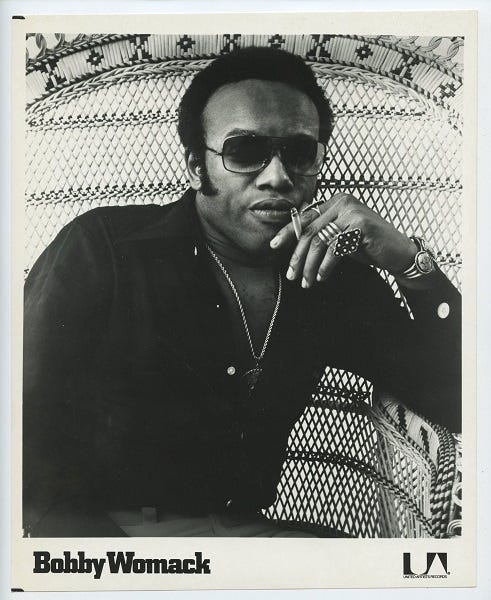
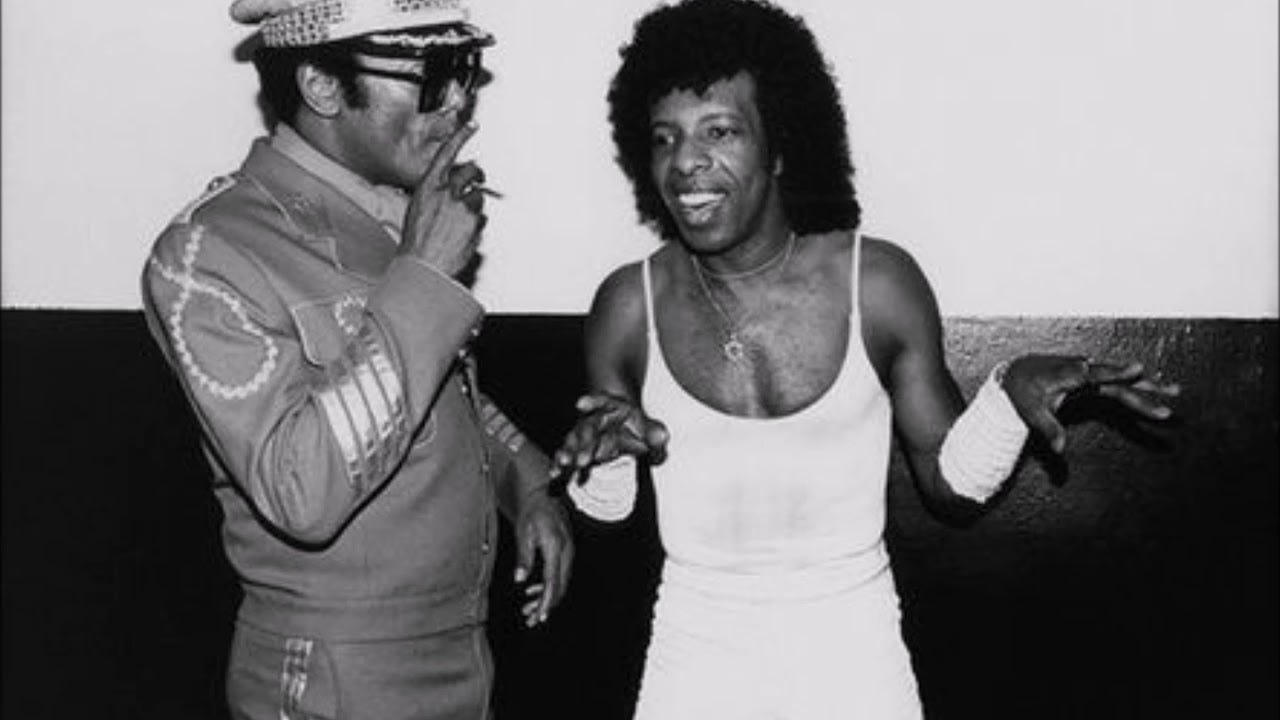
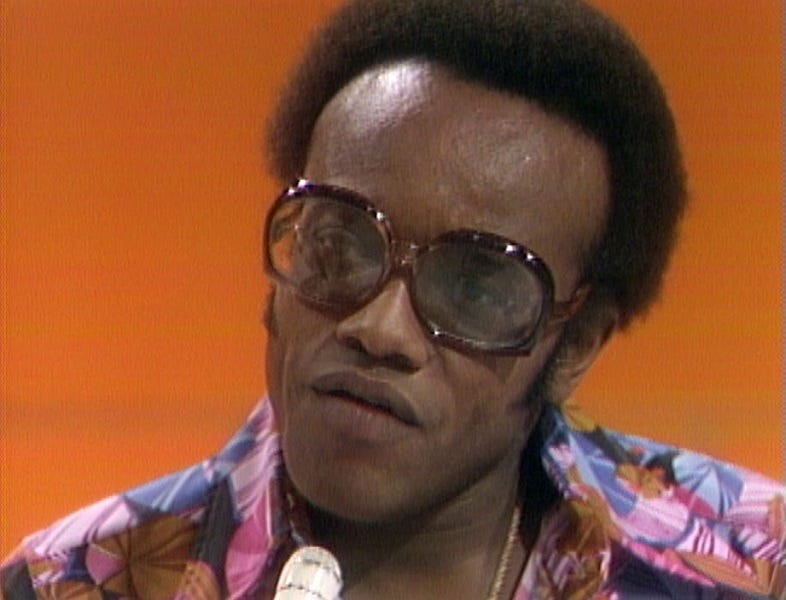

An excellent summary of Womack's career. Thank you! Not mentioned here (unless I missed it) is one of my favorites, “I’m Through Trying to Prove My Love to You.”